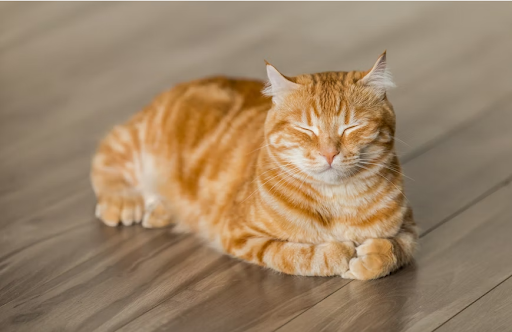Cats are obligate carnivores, which means they require a diet rich in animal protein to meet their nutritional needs. A grain-free diet for cats has become increasingly popular in recent years as pet owners seek out alternative feeding options that align with their cats’ natural diet. In this article, we’ll explore the benefits of a grain-free diet for cats, how to choose the right grain-free food, and address some common concerns about this feeding choice.

Benefits of a Grain-Free Diet for Cats
Many pet owners choose this cat food because they believe it will provide their feline friends with better health outcomes. Here are some of the benefits that a grain-free diet can offer:
Improved Digestion
Grain-free cat food is typically made without the use of grains, such as corn, wheat, and soy, which can be difficult for some cats to digest. By eliminating these ingredients, this diet can help reduce digestive issues, such as bloating, flatulence, and diarrhea. This can lead to a more comfortable and happier cat.
Better Weight Control
Cats that eat a grain-free diet are often able to maintain a healthy weight more easily. Grains can add empty calories to a cat’s diet, which can lead to weight gain and obesity. It is typically lower in calories and carbohydrates, which can help cats maintain a healthy weight and prevent obesity-related health problems.
Enhanced Nutrient Absorption
This diet is often higher in protein and essential nutrients, such as vitamins and minerals. This leads to better nutrient absorption, which is important for overall health and well-being. Additionally, this can help reduce the risk of nutrient deficiencies, which can lead to health problems down the road.
Reduced Food Allergies
Cats can develop food allergies to certain ingredients, including grains. By eliminating grains from their diet, cats are less likely to experience food allergies and their related symptoms, such as itching, redness, and gastrointestinal upset.
Choosing the Right Grain-Free Food for Your Cat
When choosing a grain-free diet for your cat, it’s important to consider the following factors:
Understanding Ingredients
Look for grain-free wet cat food that is made with high-quality animal protein, such as chicken, fish, or turkey. Avoid ingredients like by-products, fillers, and artificial preservatives, as these can negatively impact your cat’s health. Make sure that the food you choose meets AAFCO (Association of American Feed Control Officials) standards, which indicate that the food is nutritionally complete and balanced.
Consultation with a Veterinarian
Consulting with a veterinarian is always a good idea when making changes to your cat’s diet. Your vet can help you determine the best grain-free food for your cat’s individual needs and health status and ensure that the food you choose is appropriate for their age, breed, and lifestyle.
Reading Product Labels
Reading product labels is a crucial part of choosing the right grain-free cat food. Look for clear, concise labeling that lists all of the ingredients, along with their order of prominence. Avoid products that list grains as the first ingredient, as this indicates that the food is primarily made from these ingredients.
Considering the Cat’s Individual Needs
It’s important to consider your cat’s individual needs when choosing a grain-free diet. For example, if your cat has a sensitive stomach, look for food that contains probiotics to support digestive health. If your cat has a history of food allergies, opt for a limited-ingredient formula that contains a single source of protein. Your veterinarian can help you determine the best food for your cat’s individual needs and health status.
Regular Veterinary Check-Ups
Finally, it’s important to maintain regular veterinary check-ups for your cat. Your veterinarian can assess your cat’s overall health and dietary needs, as well as make any necessary adjustments to its diet if needed. Your vet provides guidance on the best nutritional options to help keep your cat in optimal health for years to come.
Regular check-ups offer an opportunity for your vet to assess any potential health concerns and address them before they become serious. Scheduling regular veterinary appointments can help ensure you are providing the best care possible for your cat.
A grain-free diet can offer many benefits for cats, including improved digestion, better weight control, enhanced nutrient absorption, and reduced food allergies. When choosing a grain-free food for your cat, it’s important to consider their individual needs, read product labels, and consult with a veterinarian. While there are some concerns about these diets, such as higher cost and limited options, the long-term health benefits can outweigh these concerns.
By switching to a grain-free diet, pet owners can provide their cats with a diet that more closely aligns with their natural dietary needs and helps to support their overall health and well-being.
You may be interested in: 8 Cute Cat Shelves You Should Buy for Your Kitties

